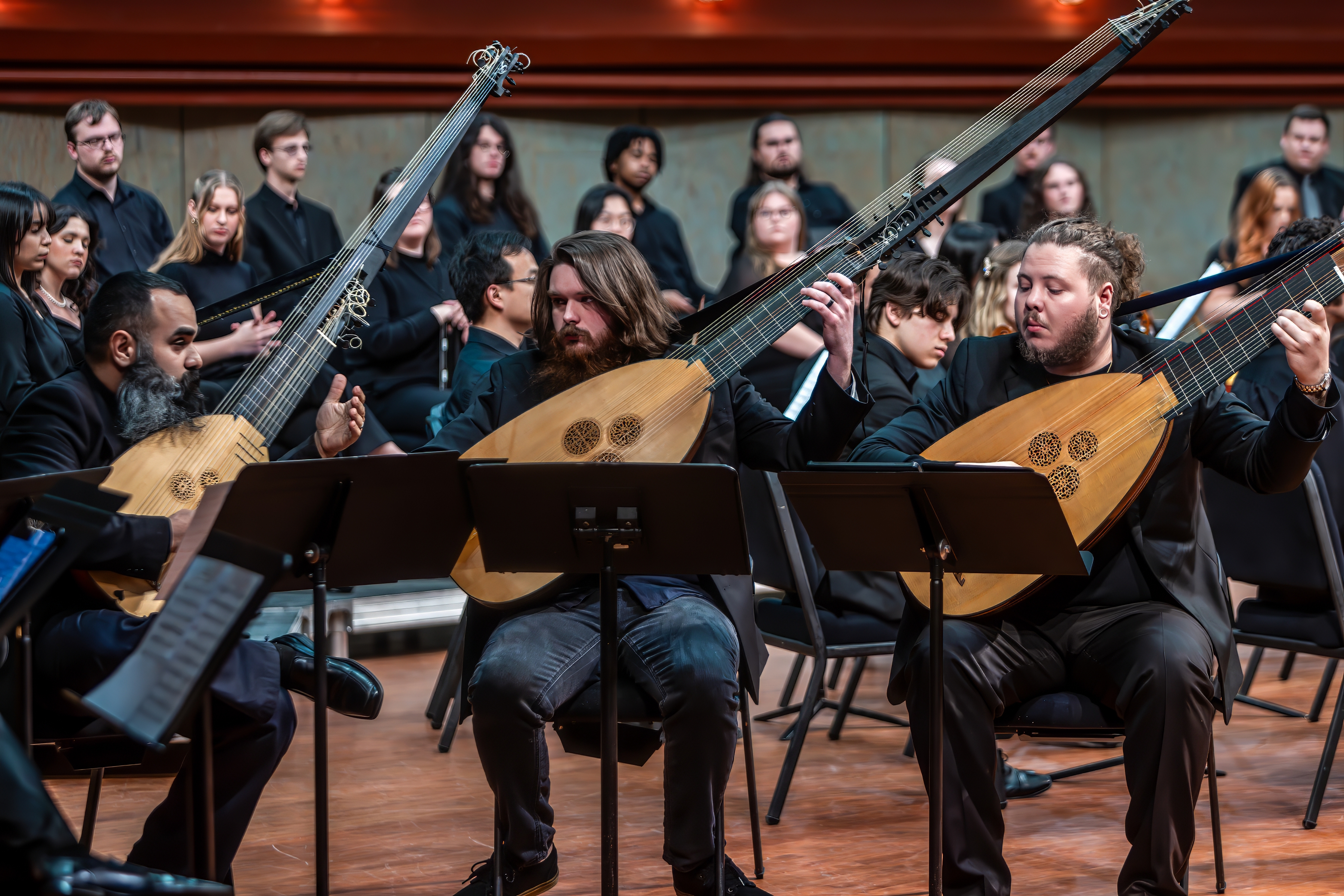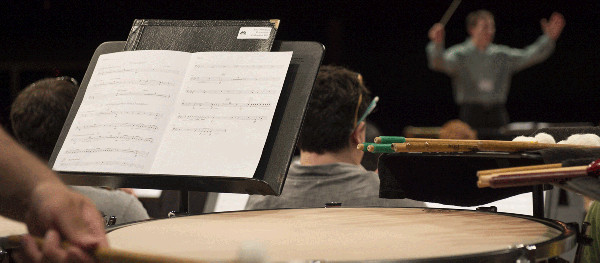Center for Experimental Music and Intermedia (CEMI)
The Center for Experimental Music and Intermedia (CEMI) provides a unique environment for exploration of the time-based arts. An interdisciplinary center within UNT’s Division of Composition Studies, CEMI is internationally renowned for its long history of innovation, particularly in the realm of electroacoustic music. Students, guests, and collaborators from a variety of disciplines engage in research, creation, and performance in CEMI’s six production studios and the Merrill Ellis Intermedia Theater.
CEMI fosters cutting-edge music and intermedia projects. Computer music from CEMI is at the forefront of synthesis and signal processing, multi-channel audio diffusion and spatialization, and live interactive performance. Intermedia works from CEMI integrate music with video/film, dance, plastic arts, theater, lighting, and robotics. CEMI composers have been recognized through major international awards, conferences, festivals, and grants. CEMI hosts residencies and guest presentations by emerging artists as well as major national and international figures.
CEMI is an important interdisciplinary link between UNT musicians and their counterparts in other arts and sciences across the UNT campus. CEMI actively promotes research in new technology; recent directions have included sound synthesis and processing, audio diffusion and spatialization, human-computer interaction, interface design, and robotic instruments.
CEMI hosts a variety of concerts of new and experimental music. The “CEMI presents” series includes guest performers and composers, faculty projects, and themed concerts. The “Centerpieces” series focuses on new electroacoustic music from North Texas musicians, including interactive and intermedia works. CEMI’s annual Intermedia Concerts feature music in combination with video and film, dance, visual and plastic arts, theater, and performance art.
Visit the CEMI website.








